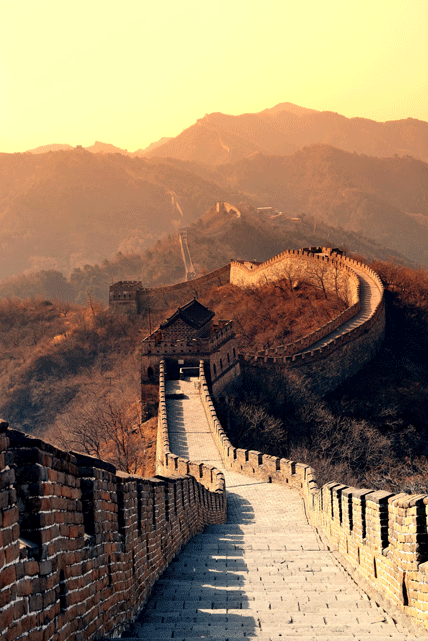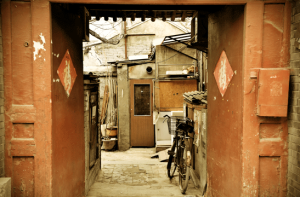 Originally trained as a barrister, Jeanne-Marie Gescher first came to China in 1987 to teach at Peking University (Beida).
Originally trained as a barrister, Jeanne-Marie Gescher first came to China in 1987 to teach at Peking University (Beida).
Since then she has worked with global business, Chinese policy-makers and institutions and has contributed to the development of China’s continually evolving regulatory landscape. In this interview she gives us some personal insights on China and the remarkable journey she has shared with it.
What brought you to China?
I thought that China would have the most deliberate approach to what was then considered the question of ‘development’.
What had you been doing previously?
When I left university in the early 1980s, I became a barrister, specialising in European competition law. It was intellectually extraordinary but humanly less so. I became legal advisor to a small UN agency in Rome as a result of which I worked with the Grameen Bank in Bangladesh and with a host of ‘developing countries’ on the idea of ‘development’ – one of those countries was China. I was given the chance to create courses on law and development at the School of Oriental and African Studies (SOAS, London University) and to help build courses on Asian law, including India and China. While at SOAS, I invited a group of city law firms with an interest in China to join a legal practitioners group which I had established at SOAS. One of those firms—Clifford Chance—asked me to establish an office for them in China.
What were your first impressions of China when you arrived?
I arrived at the old airport and fell in love with the old road that travelled into the city – with willow trees on either side, with donkey carts and bicycles meandering along its open spaces. At Beida, surrounded by huge statues of Mao Zedong and finding myself in canteens with steaming baozi, I was in a world which seemed dramatically different from anything else I had ever seen. Travelling down to Shanghai, I sat in the back seat of a car of a Hong Kong Chinese friend whose driver and Ayi were sitting in the front discussing the ups and downs of the US dollar (at a time when foreign currency was illegal). And then I watched CCTV’s Hongloumeng (Dream of the Red Chamber) on television, and heard two phrases that I have never forgotten: “shenme shi zhende, shenme shi jiade” (what is real and what is not real?), and the observations of the Jade Emperor that, “These creatures in the world below were compounded of the essence of heaven and earth, and nothing that goes on there should surprise us.” One could perhaps say the same of the West, but I wonder. I knew then, that China would be a magical combination of grand ideas on the one hand, and the fascinating fabric of human life on the other.
I came to live in China on 12th June, 1989. I was the only person on a large plane coming to pick up foreigners who wanted to leave. In fact, I wasn’t the only person, there was one other but the plane was so big and empty that we didn’t find each other until we got off the plane. It was a sad time to arrive but every foreign newspaper and every embassy sent the best of their China scholars to try to understand what had happened and what might happen, and young Chinese who thought their dreams had been lost were eager to build conversations with the few foreigners who had remained. The conversations were extraordinary.
What has been the most significant change that you have witnessed taking place in China?
Urbanisation. The mass, rapid process of urbanisation, which has transformed not only Beijing but its society as a whole and its people. Of course, it has also transformed its environment as well. Like all great transformations, it was positive and negative. Hugely exciting and a tremendous privilege to have watched a process which had hitherto only been described in textbooks and across much longer movements of time. It was extraordinary to see such vast energies unleashed in such a short period of time and to see the changes in the lives of so many close friends, including so many of the Chinese who I had come to know in the months after Tian’anmen. At the same time, it was sad to see the Beijing I first knew, with its very human landscape, disappear and become a new Beijing – not just once or twice but many times. Each time bigger, but each time with something of its human past lost.
What is the biggest regulatory improvement you have seen since being here?
I am not sure I would say it was an improvement, but the most remarkable thing I have observed, from the earliest days, was how much China wanted to learn. Within my own advisory firm, our early years of work involved deep and complex discussions about building new regulatory frameworks, understanding the mechanics of business, working out what the ‘new’ Chinese world was going to be, and trying to understand which foreign experiences would be valuable and which might not.
What do you think China’s biggest challenge will be over the coming years, particularly in light of its slowing economy?
The single biggest challenge to China is the absence of the rule of law. By rule of law, I do not mean lots of rules with legal status.
When you first took an interest in China, did you envisage where it would end up today?
I thought China would ‘do development’ more deliberately than any other country I knew. I never imagined the scale of that deliberation.
What are you expectations for the Comprehensive Agreement on Investment between the EU and China?
I think that without the rule of law, everything else is detail.
What do you think the EU-China relationship will be like in another 40 years?
I hope that, like so many other bilateral relationships, it will evolve from one which has an almost exclusive focus on economics and business, to one which is grounded on a deeper understanding of fundamental ideas – with a far wider dialogue between people, including businessmen engaging as human beings. There are many reasons why such engagement is difficult – with different reasons on either side. On the European side, I think that the quality of the relationship will be defined by our ability to look beyond formal policy and regulation and see the story of how China and its many very different people came to think the way they do. And of course, through that, to understand how they think on a wide range of issues which go well beyond economics. Of course, those issues shape economics.
Do you think chambers of commerce will continue to play a strong role in helping to shape policy in China in the future?
There is a very considerable difference between Chinese chambers of commerce or industry associations and Western ones. As far as Western chambers of commerce are concerned, I think the challenge is not just to shape policy (indeed I would be rather sceptical about the possibility of doing this in any direct sense) but to work with members to understand both the policy making process and the context within which that process takes place – and to continue to work with China in terms of explaining why the West thinks the way it does. The biggest policy issues in China are fundamental. Many of the questions surrounding those very big issues can only be addressed by China and the Chinese people. Chambers of commerce can be hugely valuable in offering perspective.
Jeanne-Marie Gescher has been honorary legal advisor to successive British Ambassadors to the PRC since 1988. She was a twice-elected chair of the British Chamber of Commerce in China; she is a longstanding advisor on China to a number of businesses and government and non-government organisations. Jeanne-Marie is also an advisor to Beijing-based China Policy.
In 2002, Jeanne-Marie received an OBE for her work on China-UK dialogue. Jeanne-Marie is a global ambassador for Leaders Quests. Jeanne-Marie has just completed her first book All Under Heaven: China’s Dreams of Order, which will be published in early October.


Recent Comments